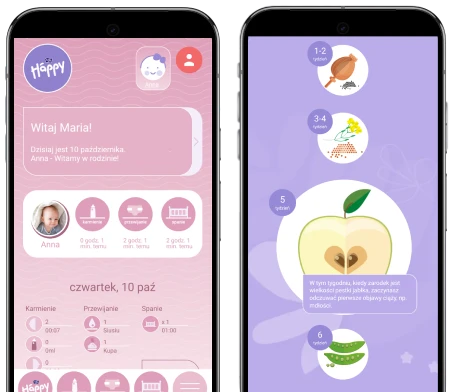Pregnancy calendar
Find out how you and your baby will change each week...


1 week


baby:
mom:
dad:
2 week


baby:
mom:
dad:
3 week


baby:
mom:
dad:
4 week


baby:
mom:
dad:
5 week


baby:
mom:
dad:
6 week


baby:
mom:
dad:
7 week


baby:
mom:
dad:
8 week


baby:
mom:
dad:
9 week


baby:
mom:
dad:
10 week


baby:
mom:
dad:
11 week


baby:
mom:
dad:
12 week


baby:
mom:
dad:
13 week


baby:
mom:
dad:
14 week


baby:
mom:
dad:
15 week


baby:
mom:
dad:
16 week


baby:
mom:
dad:
17 week


baby:
mom:
dad:
18 week


baby:
mom:
dad:
19 week


baby:
mom:
dad:
20 week


baby:
mom:
dad:
21 week


baby:
mom:
dad:
22 week


baby:
mom:
dad:
23 week


baby:
mom:
dad:
24 week


baby:
mom:
dad:
25 week


baby:
mom:
dad:
26 week


baby:
mom:
dad:
27 week


baby:
mom:
dad:
28 week


baby:
mom:
dad:
29 week


baby:
mom:
dad:
30 week


baby:
mom:
dad:
31 week


baby:
mom:
dad:
32 week


baby:
mom:
dad:
33 week


baby:
mom:
dad:
34 week


baby:
mom:
dad:
35 week


baby:
mom:
dad:
36 week


baby:
mom:
dad:
37 week


baby:
mom:
dad:
38 week


baby:
mom:
dad:
39 week


baby:
mom:
dad:
40 week


baby:
mom:
dad:

Your personal assistant before and after birth
The Happy Baby app is a personal diary of pregnancy and the first months after birth, essential for every parent. We know that pregnancy, childbirth, the birth of a child, and caring for the development of a newborn and infant is not only a beautiful, but also a very demanding time for mom and dad.
Learn more
Chusteczki nasączone
Chusteczki nasączone Bella Baby Happy to doskonały wybór w codziennej pielęgnacji maluchów. Delikatne składniki, dobrane z myślą o najmłodszych, nie tylko oczyszczają, ale też pielęgnują, łagodzą podrażnienia i nawilżają delikatną skórę dziecka.

This website uses cookies.
We use data or cookies in your browser to personalize and improve your experience on our site, analyze site activity to help support our marketing and sales efforts, display personalized ads based on information about your interests (including your activity on our site or other websites) and your location. Below you can change your browser settings to block some or all cookies.
1. The Service does not automatically collect any information, except for information contained in cookies.
2. Cookies are IT data, in particular text files, which are stored on the User’s end device and are intended for use on the Service’s websites. Cookies usually contain the name of the website from which they originate, the time they are stored on the end device, and a unique number.
3. The entity placing cookies on the User’s end device and accessing them is the Service operator, TZMO SA, with its registered office at ul. Żółkiewskiego 20/16, 87-100 Toruń.
4. Cookies are used for the following purposes:
a) adapting the content of the Service’s websites to the User’s preferences and optimizing the use of websites; in particular, these files allow recognition of the User’s device and proper display of the website, tailored to their individual needs;
b) creating statistics that help understand how Users use the Service’s websites, which enables improvements to their structure and content;
5. The Service uses two basic types of cookies: “session” cookies and “persistent” cookies. “Session” cookies are temporary files that are stored on the User’s end device until logging out, leaving the website, or turning off the software (web browser). “Persistent” cookies are stored on the User’s end device for the time specified in the cookies’ parameters or until deleted by the User.
6. The Service uses the following types of cookies:
| Name | Domain | Type | Duration |
|---|---|---|---|
| _fbp | .happy-pieluszki.pl | Advertisement | 3 months |
| fr | .facebook.com | Advertisement | 3 months |
| _ga | .happy-pieluszki.pl | Analytics | 2 years |
| _gid | .happy-pieluszki.pl | Analytics | 1 day |
| _gat_gtag_UA_23979319_4 | .happy-pieluszki.pl | Analytics | 1 minute |
| symfony | happy-pieluszki.pl | Other | session |
7. In many cases, the software used to browse websites (web browser) by default allows cookies to be stored on the User’s end device. Users of the Service may change their cookie settings at any time. In particular, these settings can be changed in such a way as to block the automatic handling of cookies in the web browser settings or to notify about each time cookies are placed on the User’s device. Detailed information about the possibilities and ways of handling cookies is available in the software (web browser) settings.
8. The Service operator informs that restrictions on the use of cookies may affect some of the functionalities available on the Service’s websites.
Information source: http://wszystkoociasteczkach.pl/

 Polski
Polski
 English
English
 Home
Home
